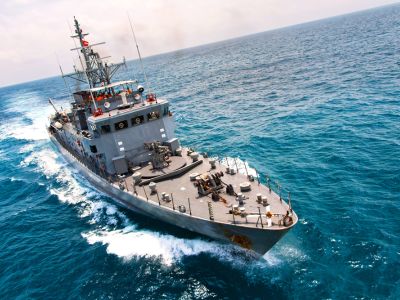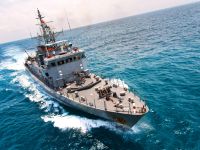Jafza, the flagship entity of Economic Zones World, has closed its first quarter of this year on a high note, marking its 25th year of operation with consistent performance and contribution to the country’s economy.
A leading contributor to the nation’s GDP, data compiled from EIU, IMF and the Dubai Statistics Department shows that growth over the last 15 years in the number of companies at Jafza are 3 times that of the UAE GDP, and that it outpaced the rate of growth of Dubai’s GDP by nearly one and a half times.
2009 was a positive year for Jafza; the year ended with Jafza companies tallying up at over 6500 and a positive growth in revenues and profit over 2008, in marked contrast to the estimated contraction of 3.1% (-3.1%) in the UAE GDP.
Salma Hareb, CEO, Economic Zones World, said: “The growth of Jafza has been driven by long term commitment to industrial, trade and logistics sectors, providing highly valued infrastructure, tools and services, consistently.”
The macro driver of logistics and Jafza’s growth has been the trade story. World population along with the standard of living in the medium and long term has been growing. Consumers have been becoming more demanding and production has gained greater efficiencies from automation, to cater to these needs. This scenario has led to a greater demand for fast and efficient logistics.
The relevance within the region has been great as well, with the growth of Dubai’s economy consistently relying on the trade and logistics industry, starting from the pearls industry till the 1950s, moving on into oil in the following decades and, more recently, real estate. Jafza today accounts for over a third of Dubai’s trade and almost half of its exports.
While the world has experienced a dramatic shock, due to economic crisis, Jafza demand shifted from growth to consolidation. An oversupply scenario has led to a growth in temporary storage needs, however. Financing options are fewer and companies are moving away from speculative development into developments that are customised and tailored to individual needs.
Mrs Hareb said, “Jafza has catered to this trend over the last two years with additional infrastructure, multiple investment models for customers to choose from, and by bringing in the dedicated build-to-suit capability, through its sister company Gazeley.”
Among the new companies to come on board in 2009 were multinational giants and leading international players such as the US-based Halliburton, a Fortune 500 firm, DQE International, subsidiary of CNPC, China’s largest petroleum technology service enterprise, Saiga, the largest heavy industrial machinery manufacturer in Japan, and Air France/ Aircelle from France.
2010 has also started off on a high with over 570 new facilities having been leased in Q1 (up 63% from 350 for the same period last year), of which 200 have been existing customers expanding, an encouraging sign in today’s economy. Among the newcomers are Michelin and Essar Steel.
Jafza now goes into the new decade with some of the biggest names in the business world, including Exxon Mobil, Petrochina, General Electric, Procter & Gamble, Schlumberger, Sony, Samsung, Panasonic, Sanofi-Aventis, Schneider Electric, Unilever, Daimler, Honda, Nissan, Volvo, GM, Honeywell, Toshiba, Rolls Royce and Hitachi, among others.
Jafza’s key strengths have been excellent logistics matrices. It is built around Jebel Ali Port, the 6th largest container port, served by 150 shipping lines and offering 90 weekly services. Extensive feeder services provide connection to regional markets. Flights connect Jafza to more than 200 destinations worldwide. Further, it is connected to regional markets through extensive road network, all totalling to the fastest lead times for the movement of goods.
Over 50 of the world’s top logistics companies are based in Jafza offering huge outsourcing opportunities. Jafza’s optimally configured supply chain can be calibrated to demand and controlled to assume compliance with regulatory policy while assuring consistent execution. Jafza’s competitiveness has been measured as per World Bank parameters, including ‘Ease of Doing Business’; ‘Dealing with Licenses’; ‘Employing Workers’; and ‘Registering Property’ and has seen it being ranked No. 1 in the Middle East.
The commitment to making Dubai a truly logistics-friendly city and the centre of logistics in the eastern hemisphere continues. The latest initiative has been the Dubai Logistics Corridor when Economic Zones World collaborated with Dubai Aviation City Corporation (DACC) in 2009. The Corridor is the world’s largest multi-modal logistics platform that links sea, land and air to facilitate the transportation of goods in under one hour from the current four hours, which in real terms is a quadrupling of Dubai’s logistics efficiencies.









